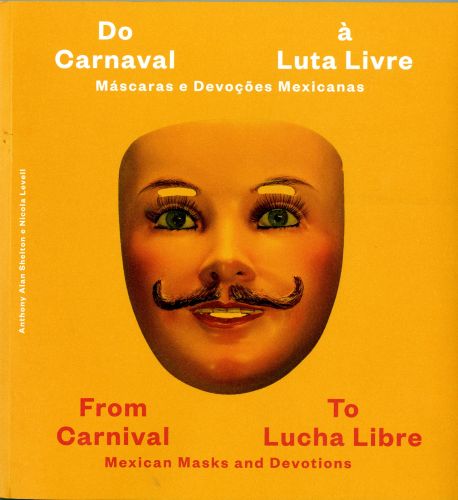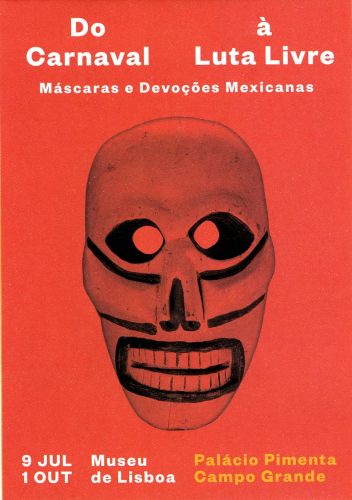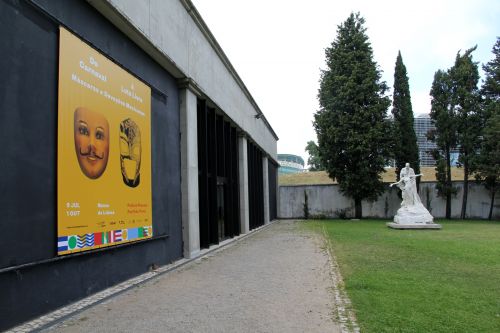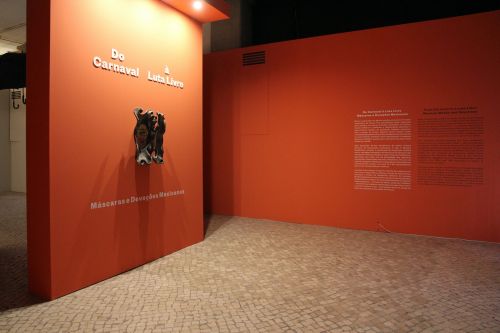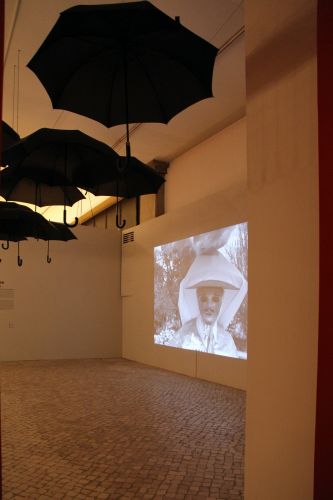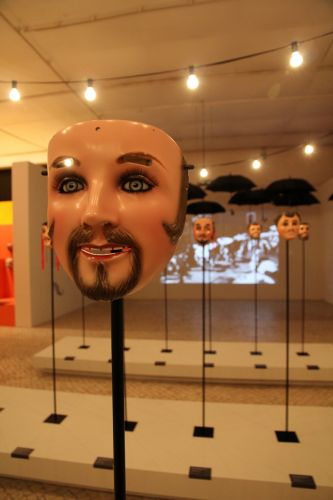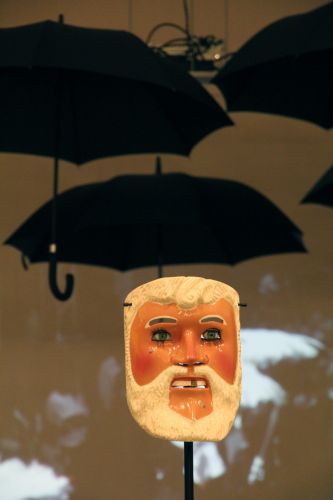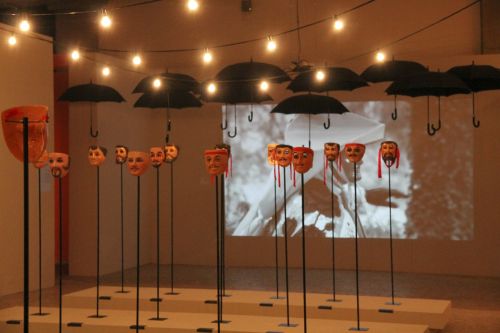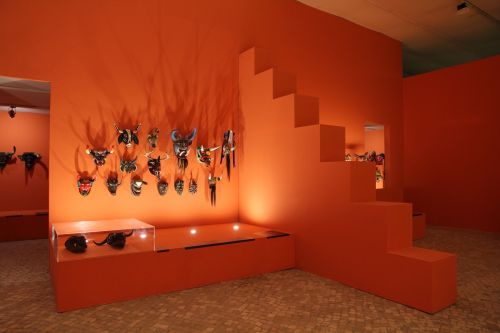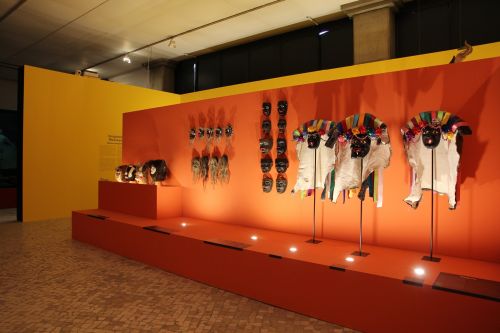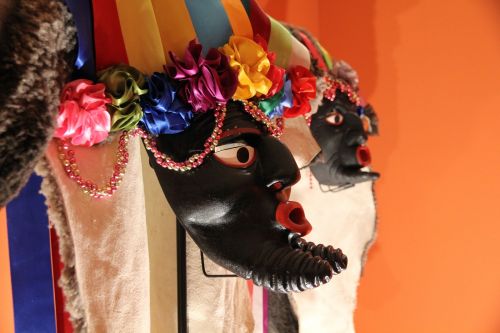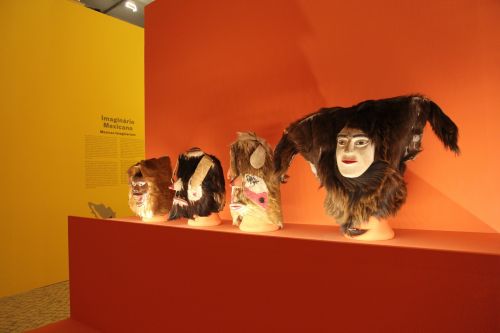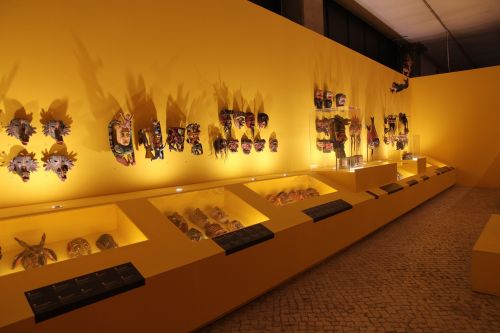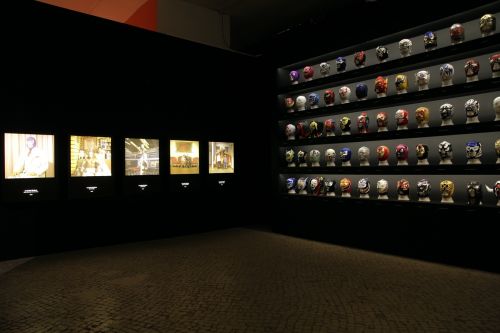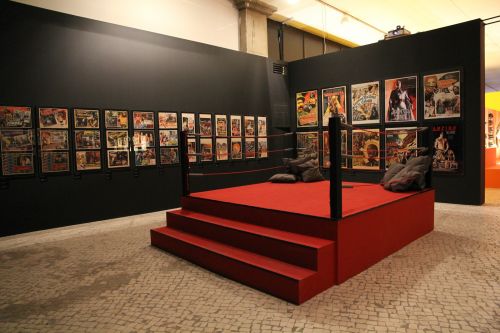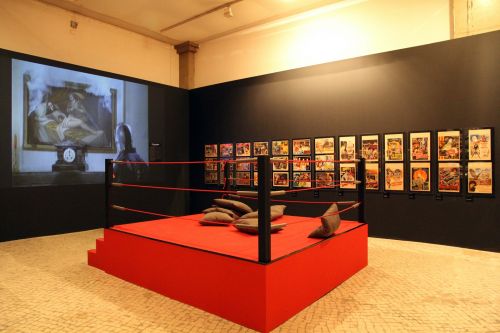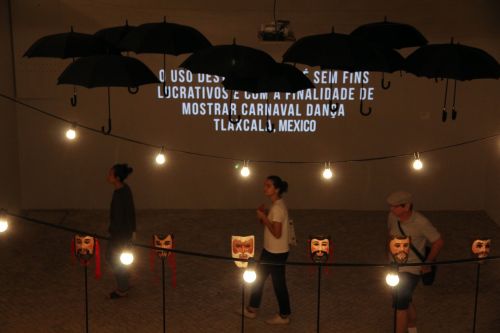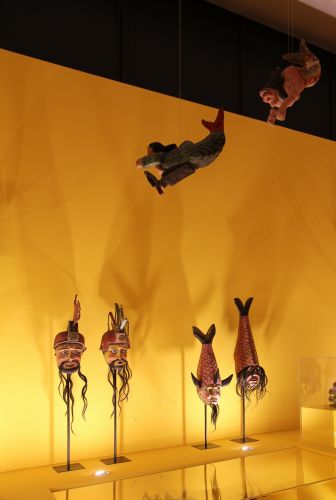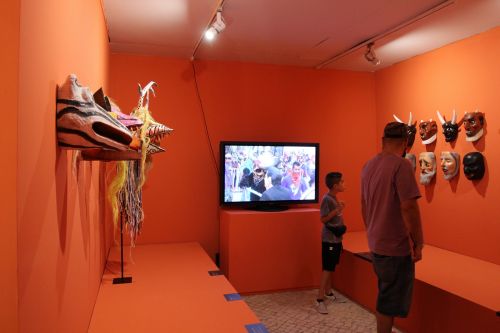From Carnival to Lucha Libre
Mexican Masks and Devotions
09 Jul 2017 — 01 Oct 201710h – 18h
The exhibition From Carnival to Lucha Libre: Mexican Masks and Devotions shed a spotlight on narratives that draw upon indigenous cultural practices, weaving in aspects of popular culture, to reveal insights into relations between European empires and the peoples of the Americas over time. This was one of the main areas of focus in the programme Past and Present: Lisbon, Ibero-American Capital of Culture 2017.
Curated by Anthony Shelton, a renowned anthropologist and collector of Mexican masks, which he acquired as the result of prolonged fieldwork in various regions of Mexico, the exhibition featured around 250 masks of different kinds made in the 20th and 21st centuries, along with films, comic strips, posters and Lourdes Grobet's photographs of wrestlers and their families.
In Mexico, such masks are an increasingly conspicuous icon of Mexican identity, and make an appearance at religious festivals, public protests and local Lucha Libre events. Masks have existed down the centuries: they were worn before the Spanish occupation, during the colonial period and after Independence. They crop up in different settings and regions of Mexico, from north to south. Many masks stem from the conflicts between indigenous, European and African cultures, as is apparent from the appearance of figures from Moorish, Christian, Apache, Aztec and Spanish iconography.
Carnival masks represent Europeans, but ceremonial masks are figurative depictions of tigers, devils, mermaids, serpents, crocodiles and bats, or alternatively personifications of Spanish, African and Moorish figures. These continue to be made to this day, intended for sale and to be worn at the various festivities that still take place up and down the country.
One especially innovative feature of this exhibition was that it mapped out the link between Mexican masks and the national phenomenon of Lucha Libre, or Mexican wrestling, in which the fighters wear masks. A combination of sport, wrestling and entertainment, Lucha Libre was first established in 1933. Ever since then, it has been hugely popular and inspires fervent devotion among its followers.
The material relating to the masks and objects and iconography relating to Lucha Libre, including documentaries and photographs, gave visitors a greater insight into the people who invent, make and wear such masks, as well as the fighters and their social background, while revealing the distinctive relationship with the supernatural evinced by such practices.
Held as part of Past and Present – Lisbon, Ibero-American Capital of Culture 2017, this exhibition told fantastical tales from Mexico through brightly coloured original masks that are steeped in meaning.
More information here

© Museu de Lisboa
